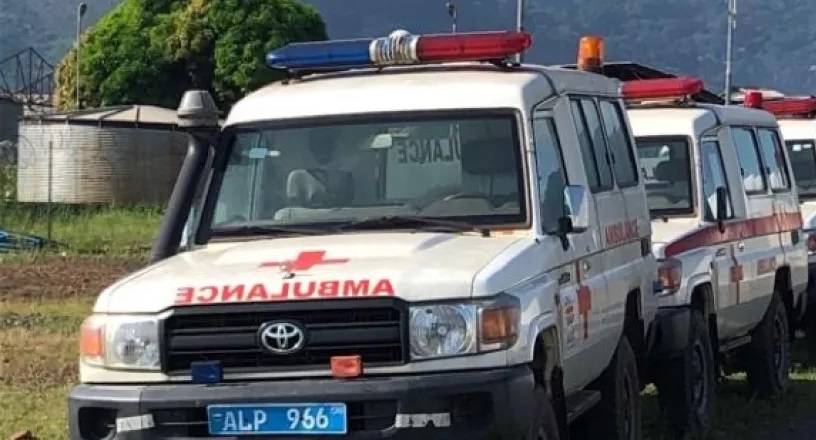In Sierra Leone, health workers, especially those in the provinces, heavily rely on ambulances to transport patients in need of urgent care to the nearest health centers or hospitals. However, a significant problem has emerged as these essential vehicles have become largely ineffective due to a series of corruption allegations and systemic inefficiencies. These issues have left ambulances idle, awaiting repairs and fuel that never seem to arrive.
A recent report by Health Alert, titled “Prompting Social Accountability for Improved Health Service Delivery in Sierra Leone,” has revealed a range of issues affecting the health sector. Victor Lansana Koroma, the Executive Director of Health Alert, presented the findings to journalists on Friday. He highlighted the dire situation, stating, “In all the five districts we covered, no ambulances are available. All the ambulances are wrecked.”
The report, based on a study conducted in Kailahun, Tonkolili, Bonthe, Falaba, and the Western Area Districts, underscores the critical state of ambulance services. For years, the inadequate or ineffective operation of ambulances has posed a significant challenge for Sierra Leone’s health system. Most health centers in these districts are not only dealing with the absence of functional ambulances but are also faced with inadequate staffing and insufficient drug supplies. Additionally, some health centers in these districts lack functional air conditioners in their drugstores, exacerbating the challenges.
To address these issues, the government, along with its partners, established the National Emergency Medical Service (NEMS). Despite this initiative, the effectiveness of ambulance services remains a major concern. The NEMS was expected to provide a reliable and efficient emergency medical response, but the persistent problems highlighted in the report indicate a need for more robust measures and accountability.
The findings of the Health Alert report call for urgent action to address the corruption and inefficiencies plaguing the ambulance services. Without functional ambulances, the health outcomes for patients in need of urgent care are severely compromised, emphasizing the necessity for immediate and sustained intervention to improve health service delivery across Sierra Leone.











